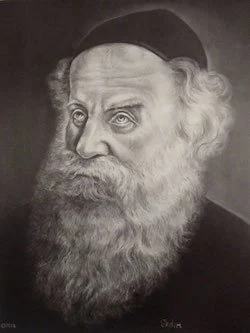
First Fruits, Last Warnings
The name of the Parshah, "Ki Tavo," means "when you come.”
Moses instructs the people of Israel: When you enter the land of Israel and you settle it and cultivate it, bring the first-ripened fruits of your orchard to the Beit Hamikdash, to show gratitude for all that Hashem has given you.
The latter part of Ki Tavo consists of rebuke. After listing the blessings with which G‑d will reward the people when they follow the laws of the Torah, Moses gives a long, harsh account of the bad things that shall befall them if they abandon G‑d’s commandments.

Elul: Forty Days of Forgiveness
Seven weeks after the exodus, the Jewish people received the Torah at Mount Sinai. But just 40 days later, while Moses was still up on the mountain, they worshipped the golden calf. Upon witnessing their transgression, Moses smashed the two tablets. He then returned to Mount Sinai for a second 40 days to plead with G‑d on Israel's behalf.
On the early morning of the 1st of Elul, Moses once again ascended Mount Sinai, taking with him the stone tablets he had hewn, for G‑d to re-inscribe the Ten Commandments. On the mountain, G-d taught him the secret of His "Thirteen Attributes of Mercy.”
For the third time, Moses remained on the mountain for 40 days, from the 1st of Elul until the 10th of Tishrei (Yom Kippur), during which time He obtained G‑d's whole-hearted forgiveness and reconciliation with the people of Israel. Ever since, the month of Elul serves as the "month of Divine mercy and forgiveness."

The Depth of a True Thank You
I never realized how saying “thank you” is such an integral part of our Jewish tradition, until I was doing my weekly reading of the Torah, and I was struck by the way Jews thank. When bringing the Bikurim to the BeiT Hamikdash, they would recite a paragraph stating all the hardships they went through and how it was Hashem who saved them and cared for them until this moment.
When I first read this verbose thank-you, I wondered whether this was not a case of the Bible getting carried away with some flowery poetry.
But upon reflection, I realized that the Torah was actually giving us a great lesson in humanity. Saying “thank you” should never be some brief line that we were taught to say by rote. Saying thanks is a full realization of the context of the gift or kindness that we have received and is an expression of our inner appreciation.
When we thank our parents, spouse or friends, we need to take into consideration what these people have done for us, not only today but in the past. We need to consider the words that we offer, so that it paints a full picture of our sincere appreciation for what we have been given.

Redemption Through Worthiness
How do we know that our work can hasten the redemption? We learn it from the last words of this week’s haftarah, which say regarding the redemption, “in its time, I will hasten it.”9 If it’s in its time, it is not hastened; and if it is hastened, it is before its time.
What then is the meaning of these words? The answer is10 that if we are not worthy, it will come in its time. However, if we are worthy, because of our mitzvahs, kindness and love for each other, it will be hastened.
There is no doubt that with all we have done and all we have been through, we are more than worthy. May G‑d hasten the coming of Moshiach, and may we experience the prophecy of this haftarah. May it happen soon.

Hearing Only Blessings
The Alter Rebbe would read the Torah in public. One year, he was away during the Torah reading of Ki Savo, and his young son and future successor, Rabbi Dovber, heard someone else read the portion, which includes G-d’s severe rebuke of the Jewish people.
The son became so distressed that he fainted, and weeks later it was still questionable whether he’d be able to fast on Yom Kippur. The chasidim later asked him: “In previous years you didn’t faint; what happened this year?” The boy responded, “When father reads it, I don’t hear curses.”
Torah is G-d’s wisdom, deriving from a realm beyond all sin, where only goodness exists. Every single verse, word or letter of Torah has equal importance and holiness – be it one of the Ten Commandments or the description of a most heinous sin.
When Torah descends down into the physical world, the negative concepts within Torah can become manifest as evil… A true tzaddik, however, maintains the ability to read it in this world, but simultaneously be bound to the highest, most Divine realms where everything in Torah stands at its source, where there is only infinite good and even the words of harshest rebuke are manifest as they truly are: an expression of G-d’s goodness and blessing.